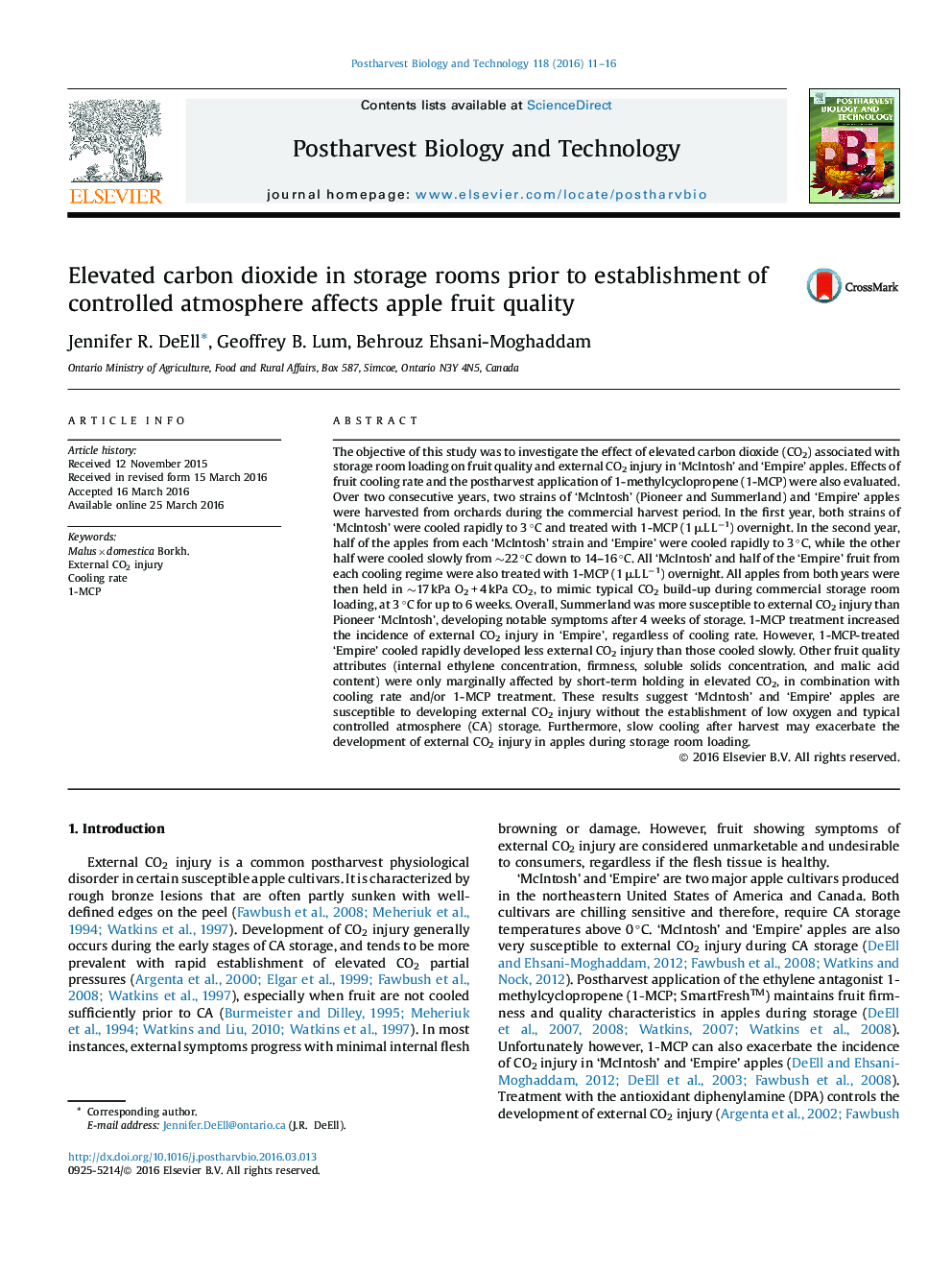| Article ID | Journal | Published Year | Pages | File Type |
|---|---|---|---|---|
| 4517784 | Postharvest Biology and Technology | 2016 | 6 Pages |
•‘McIntosh’ and ‘Empire’ apples developed external CO2 injury within 1–6 weeks of harvest, during holding in ∼17 kPa O2 + 4 kPa CO2 at 3 °C.•Slow cooling after harvest exacerbated the development of external CO2 injury in apples.•1-MCP treatment increased the incidence of external CO2 injury in ‘Empire’ apples, regardless of cooling rate.
The objective of this study was to investigate the effect of elevated carbon dioxide (CO2) associated with storage room loading on fruit quality and external CO2 injury in ‘McIntosh’ and ‘Empire’ apples. Effects of fruit cooling rate and the postharvest application of 1-methylcyclopropene (1-MCP) were also evaluated. Over two consecutive years, two strains of ‘McIntosh’ (Pioneer and Summerland) and ‘Empire’ apples were harvested from orchards during the commercial harvest period. In the first year, both strains of ‘McIntosh’ were cooled rapidly to 3 °C and treated with 1-MCP (1 μL L−1) overnight. In the second year, half of the apples from each ‘McIntosh’ strain and ‘Empire’ were cooled rapidly to 3 °C, while the other half were cooled slowly from ∼22 °C down to 14–16 °C. All ‘McIntosh’ and half of the ‘Empire’ fruit from each cooling regime were also treated with 1-MCP (1 μL L−1) overnight. All apples from both years were then held in ∼17 kPa O2 + 4 kPa CO2, to mimic typical CO2 build-up during commercial storage room loading, at 3 °C for up to 6 weeks. Overall, Summerland was more susceptible to external CO2 injury than Pioneer ‘McIntosh’, developing notable symptoms after 4 weeks of storage. 1-MCP treatment increased the incidence of external CO2 injury in ‘Empire’, regardless of cooling rate. However, 1-MCP-treated ‘Empire’ cooled rapidly developed less external CO2 injury than those cooled slowly. Other fruit quality attributes (internal ethylene concentration, firmness, soluble solids concentration, and malic acid content) were only marginally affected by short-term holding in elevated CO2, in combination with cooling rate and/or 1-MCP treatment. These results suggest ‘McIntosh’ and ‘Empire’ apples are susceptible to developing external CO2 injury without the establishment of low oxygen and typical controlled atmosphere (CA) storage. Furthermore, slow cooling after harvest may exacerbate the development of external CO2 injury in apples during storage room loading.
